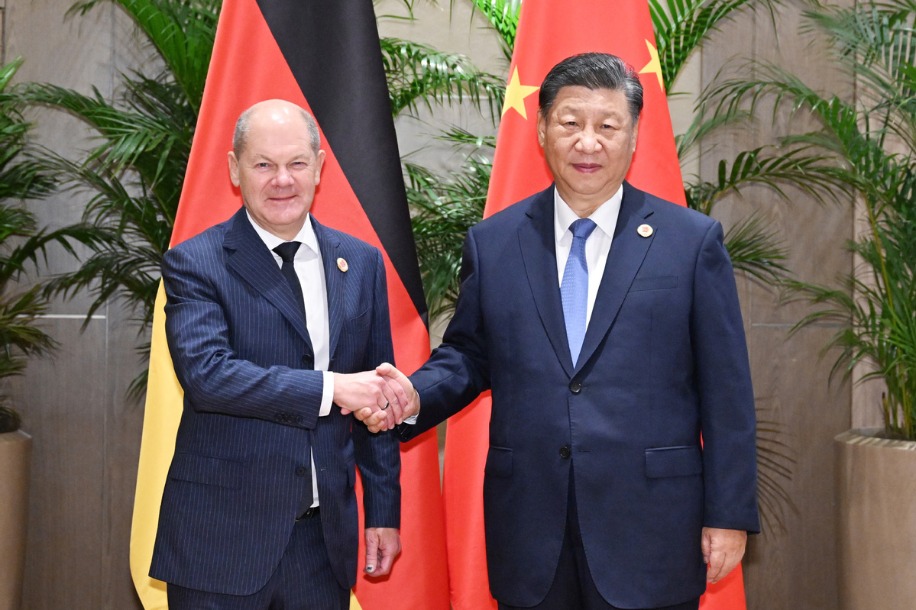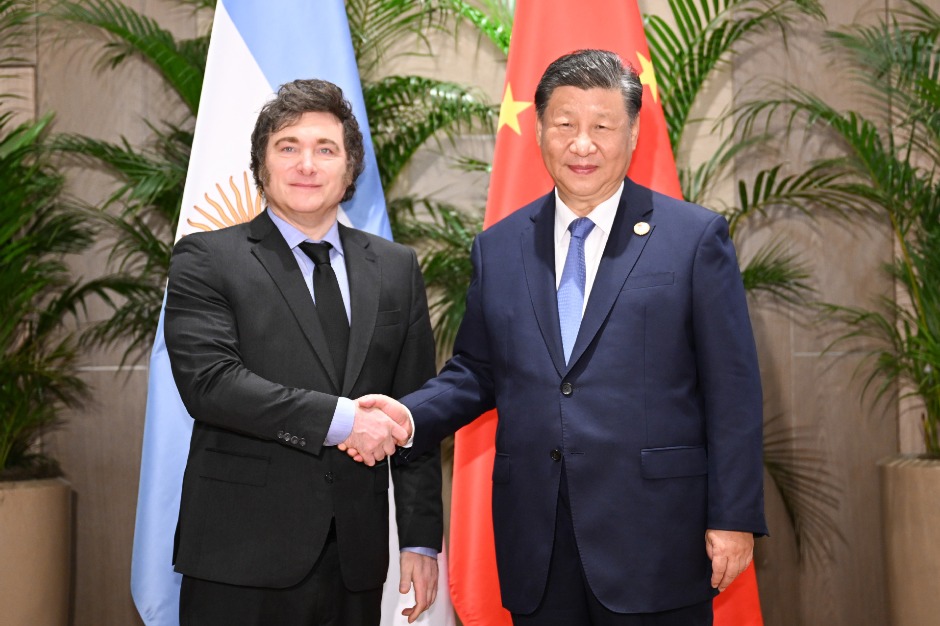Rio orchestra thrives with help from Chinese firm
By Mo Jingxi in Rio de Janeiro | China Daily | Updated: 2024-11-20 07:47

For Amanda Magalhaes Soares Rodrigues, the second child of a postman and a cleaner living in the Brazilian city of Rio de Janeiro, classical music was practically nonexistent until she changed schools for more affordable tuition fees at age 15.
Her new school was located near the Rio neighborhood of Mare, where many poor children tend to skip classes and risk gang-related violence. To her surprise, the teenager found an orchestra project involving thousands of students from more than 20 schools in Mare.
"I have been a member of the orchestra since 2014," said Rodrigues, now 25, principal cellist with Mare do Amanha Orchestra, or Mare Orchestra of Tomorrow. She also teaches cello in a school in Mare to students ages 6 to 10.
In August, Rodrigues and about 20 other musicians of the orchestra made their first-ever trip to China and performed in collaboration with Chinese musicians to celebrate the 50th anniversary of diplomatic relations between China and Brazil.
In addition to Brazilian songs, they performed classical Chinese pieces including Jasmine Flower, Butterfly Lovers, and Big Fish.
"The trip was so good. I met nice people and had delicious food such as the Peking duck. More importantly, I played with a cellist from China, and she taught me how to play better and even gave me some books with Chinese songs," Rodrigues said.
The Brazilian musician said that playing the cello helped her become more disciplined, and the same now holds true for her students.
"As a young girl, there were times when I was very anxious and depressed, but having the cello helped me feel relieved. It helped me channel my emotions and focus on playing," Rodrigues said, adding that she couldn't have asked for a better life.
Filipe Kochem, a violinist and conductor of the orchestra, said the flourishing China-Brazil relationship has played a fundamental role in the survival and success of the orchestra, which aims to harness the power of music to transform the lives of children in Mare.
Mare do Amanha Orchestra was founded in 2010 by Carlos Eduardo Prazeres, the son of conductor and educator Armando Prazeres, who was murdered in 1999 by a resident of Mare. The orchestra lost its sponsorship soon after launch, but received a fresh lease of life in 2011 from the State Grid Corp of China.
Kochem said the Chinese power supply company's helping hand changed fortunes of the orchestra.
"After this help from China, we gained respect. I think it's the most important thing for us, because like today, we play for a lot of important people," he said, referring to an event attended on Saturday by Chinese Ambassador to Brazil Zhu Qingqiao and Brazil's Minister of Culture Margareth Menezes.
The orchestra also performed for President Xi Jinping during his state visit to Brazil in 2014, marking the 40th anniversary of the two countries' diplomatic relations.
As the Chinese president arrived in Rio de Janeiro on Sunday for the 19th G20 Summit and a state visit to Brazil, Kochem said that with such high-level exchanges between the two countries, China and Brazil are like brothers growing together for common development.
Rodrigues, the cellist, said she wants to play the cello throughout her life, and is preparing for admission to college.
It would be "an unimaginably good thing" if President Xi's visit could bring more opportunities for her to visit China again, or even study in that country, she added.
























